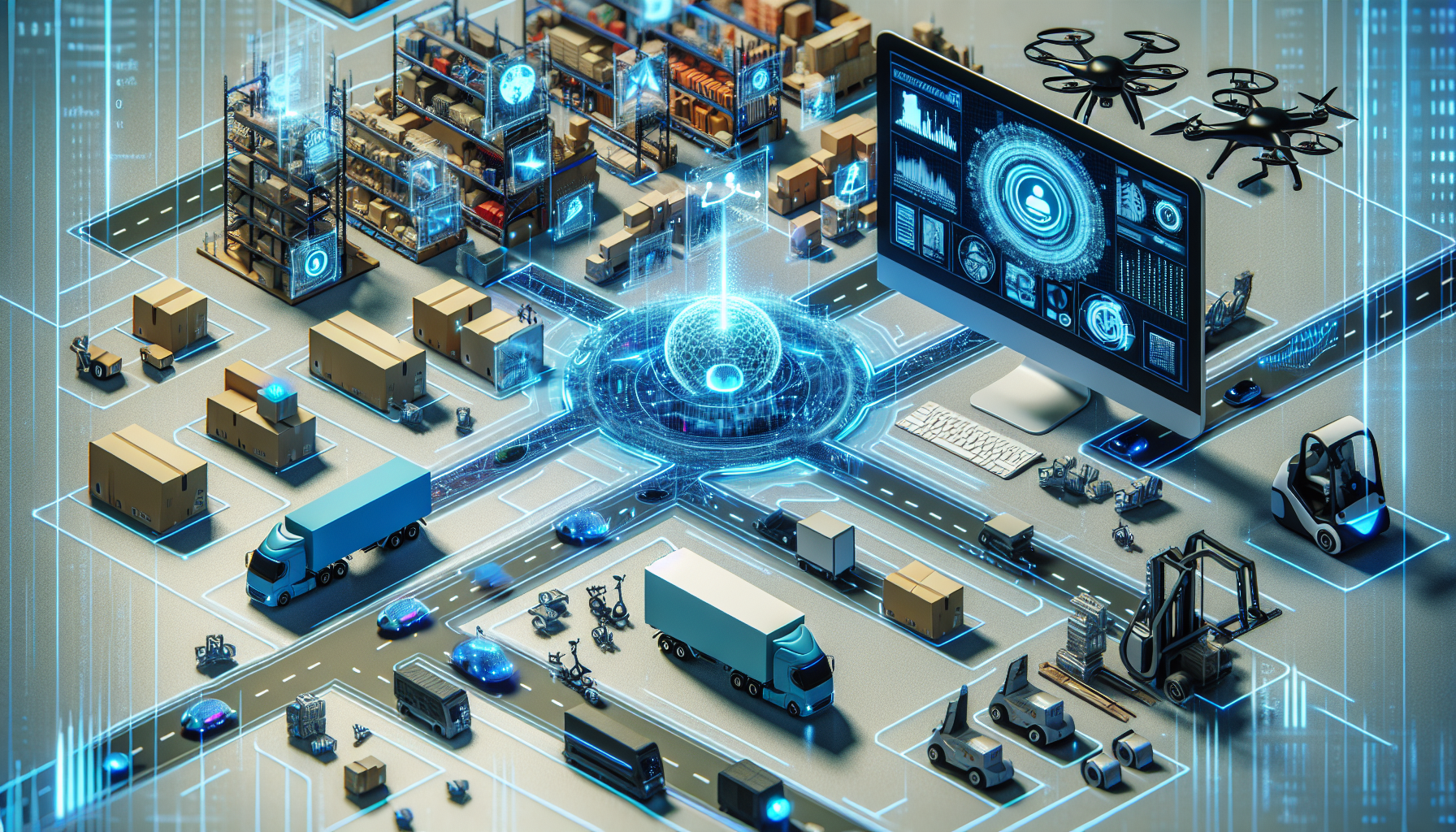AI in Supply Chain Management: Optimizing Logistics for Retailers
The retail landscape is embarking on a paradigm shift due to the integration of artificial intelligence (AI) into supply chain management. As consumer expectations evolve, businesses are under pressure to enhance efficiency, reduce costs, and improve customer satisfaction. AI technologies are revolutionizing logistics and enabling retailers to optimize their operations significantly.
Understanding AI in Supply Chain Management
AI encompasses machine learning, data analytics, and predictive modeling, which collectively facilitate smarter decision-making. In supply chain management (SCM), AI interprets vast amounts of data, identifies patterns, and forecasts trends that help retailers manage their inventories, reduce operational costs, and refine delivery processes. The potential of AI is profound, as it addresses the complexities of logistics through automation and enhanced data utilization.
Predictive Analytics for Inventory Management
One of the crucial areas where AI excels is predictive analytics. Retailers face challenges with stock management, where either stockouts or overstock can severely impact revenue and customer satisfaction. AI algorithms analyze historical sales data, seasonal trends, and market indicators to forecast demand accurately.
For example, Walmart employs AI to predict sales fluctuations due to weather changes, holidays, or other market variables, allowing them to adjust stock levels proactively. AI-driven inventory management systems minimize excess inventory while ensuring product availability, thereby optimizing storage costs and improving cash flow.
Enhanced Demand Forecasting
Demand forecasting is pivotal in a supply chain’s efficacy. Traditional forecasting methods often struggle with accuracy, leaving retailers vulnerable to market volatility. AI enhances demand forecasting by utilizing machine learning models that learn from past trends and real-time data.
Retailers like Amazon use AI to analyze purchase patterns, returning customers’ data, and customer behavior analysis, allowing them to forecast demand with remarkable accuracy. Such precision in forecasting enables retailers to maintain optimal stock levels and align their supply chain resources efficiently.
Smart Logistics and Routing Optimization
Logistics is a core component of supply chain management, and AI significantly impacts its efficiency. AI-powered logistics solutions enhance route planning and load optimization for deliveries. By using algorithms that factor in real-time traffic conditions, weather patterns, and delivery time windows, AI systems can determine the most efficient routes for transportation.
Companies like UPS utilize AI to optimize their delivery routes, which has led to fuel savings, reduced delivery times, and improved customer satisfaction. By streamlining logistics, AI not only reduces costs but also enhances the reliability of delivery services.
AI-Driven Supplier Relationship Management
Managing relationships with suppliers is essential for ensuring a steady flow of goods. AI can facilitate better communication and collaboration through data sharing and analytics. By leveraging AI, retailers can analyze supplier performance metrics and gauging reliability in terms of delivery timeliness and product quality.
For instance, Procter & Gamble employs AI to analyze supplier performance data. This allows for real-time adjustments in procurement strategies and supplier negotiations, ultimately resulting in reliable supply chains and fostering stronger vendor relationships.
Automated Warehousing Solutions
Warehousing is an integral part of supply chain operations, and automation powered by AI transforms this segment. Robotics and AI algorithms streamline order fulfillment, reduce human error, and enhance accuracy. Automated Guided Vehicles (AGVs), powered by AI, navigate warehouses efficiently for item retrieval, and sorting systems utilize machine learning to identify and categorize products.
Companies like Alibaba are at the forefront, using AI to automate warehousing processes. Their robots can handle thousands of items efficiently, decreasing the time spent in warehousing and increasing overall productivity, thus enhancing service delivery to retailers.
Improved Customer Experience Through AI
In retail, customer experience is paramount. AI plays a vital role in creating personalized shopping experiences, which are integral for customer retention. AI analyzes customer behavior, preferences, and past purchases to offer tailored product recommendations, resulting in enhanced customer satisfaction and loyalty.
For instance, e-commerce platforms often utilize recommendation engines powered by AI to suggest products that align with customers’ browsing history. This personalization extends to supply chain logistics, where AI can predict the best methods of fulfillment, ensuring timely delivery aligned with customer preferences.
AI and Risk Management
Supply chains are inherently vulnerable to risks such as natural disasters, political unrest, or supplier insolvency. AI enhances risk management through advanced analytics that can identify potential disruptions. Machine learning algorithms can analyze various risk factors to predict significant disruptions and suggest contingency plans.
Retailers like Target leverage AI to assess risks by analyzing global market trends and events. This capability enables them to adopt preventive measures and maintain operational continuity, ensuring that disruptions have minimal impact on overall business performance.
Cost Reduction Through AI Solutions
Cost efficiency is a primary goal of any supply chain operation. AI helps retailers identify inefficiencies, reduce operational costs, and optimize labor needs. By automating repetitive tasks, AI allows employees to focus on higher-value work, enhancing overall productivity.
Moreover, AI-driven analytics identify savings opportunities across the supply chain, from procurement to logistics. Retailers can negotiate better rates with suppliers based on predictive pricing models, optimizing their expenditures without compromising quality.
Real-Time Monitoring and Visibility
AI provides enhanced visibility across the supply chain, enabling real-time monitoring of products from procurement through delivery. IoT devices, paired with AI analytics, offer insights into inventory levels, product conditions, and transportation statuses. This capability allows retailers to respond swiftly to issues as they arise.
By using AI-driven visibility tools, retailers can assess the supply chain’s performance and make on-the-fly adjustments to optimize operations. Companies like Starbucks utilize these technologies to ensure their supply chain operates smoothly while maintaining high-quality standards.
Conclusion
The integration of AI into supply chain management is a game-changer for retailers. By harnessing predictive analytics, logistics optimization, inventory management, and enhanced customer experiences, AI empowers retailers to meet the demands of today’s market. As technology evolves, the reliance on AI solutions in SCM will undoubtedly grow stronger, further transforming the retail logistics landscape. Retailers willing to adapt and innovate will find themselves at a significant advantage in an increasingly competitive environment.


